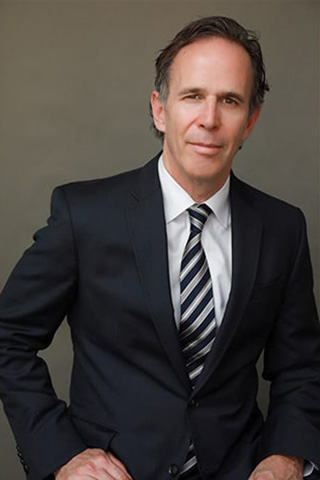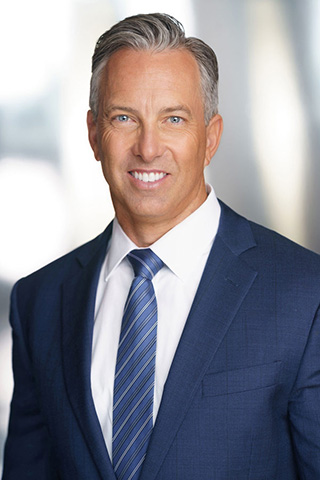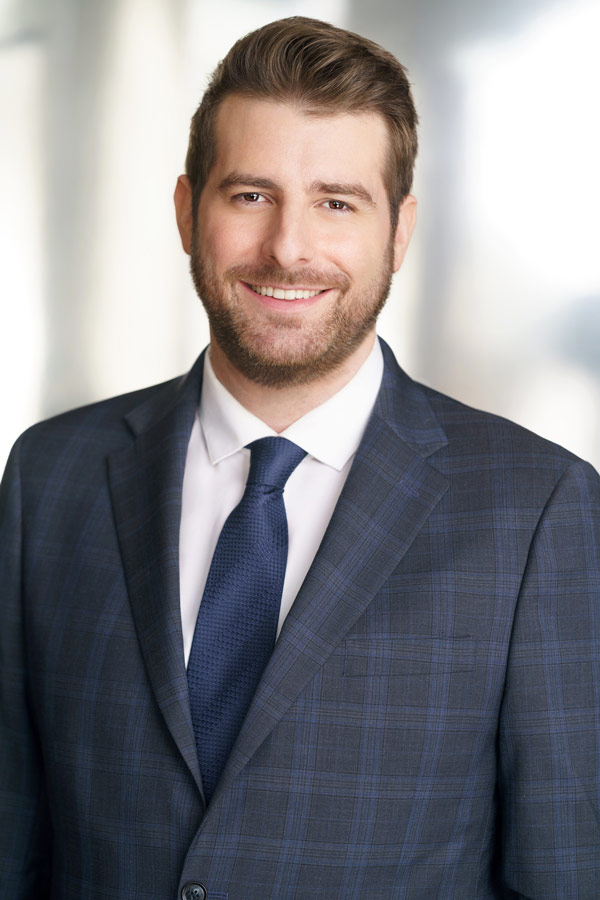Sexual abuse is a devastating violation that leaves survivors facing deep emotional scars, psychological distress, and often physical harm. The pain it causes sometimes extends far beyond the individual, affecting families and even the psyche of entire communities.
At Wilshire Law Firm, we are unwavering advocates for sexual abuse victims in Oakland and throughout California, providing compassionate legal support to help you seek justice and begin the healing process.
An Oakland sexual abuse lawyer with Wilshire Law Firm will provide a safe, judgment-free environment for you to share your experience and explore your legal options. We know that seeking justice requires immense courage, and we are committed to guiding you through every step with empathy and care.
Pursuing legal action isn’t just about holding perpetrators accountable and obtaining compensation for your injuries—it’s about reclaiming your life, finding validation, and ensuring that your voice is heard.
Oakland Sexual Abuse Guide:
- The Importance of Legal Action
- What is Considered Sexual Abuse?
- Common Types of Sexual Assault
- Where Does Sexual Abuse Happen?
- Child Molestation
- Civil vs. Criminal Cases: Pursuing Justice on Your Terms
- Civil Cases: Seeking Justice and Financial Recovery
- What to Do After Sexual Abuse
- Compensation and Justice for Survivors Through a Civil Lawsuit
- What is the Statute of Limitations for Filing a Sexual Abuse Civil Case in California?
- Seeking Justice with an Oakland Lawyer
The Importance of Legal Action

Sexual abuse can have far-reaching consequences that affect every aspect of a survivor’s life. While no legal outcome can erase the pain you suffer, pursuing justice can bring a multitude of benefits. Survivors often face uncertainty when considering legal action, but the potential impact on their recovery and future is profound.
Taking legal action can be immensely beneficial for sexual abuse survivors in many ways, including:
- Accountability: Legal action holds the perpetrator—and potentially negligent institutions—accountable for their role in the abuse. Accountability is a critical step toward justice.
- Financial compensation: Survivors often face medical expenses, therapy costs, and lost wages due to the trauma inflicted by the abuser. Legal action can secure the financial resources necessary for recovery.
- Preventing further harm: By exposing abusive individuals or systemic failures, survivors play a key role in protecting others from similar experiences.
- Empowerment and closure: Many survivors find that the act of speaking out against their abuser helps them reclaim a sense of control and dignity.
- Driving societal change: Sexual abuse lawsuits often shine a light on systemic issues, driving necessary reforms in schools, workplaces, churches, and other environments.
At Wilshire Law Firm, our Oakland sexual abuse lawyers are committed to helping survivors achieve these goals, working tirelessly to ensure your voice is heard and your rights are upheld.
What is Considered Sexual Abuse?
Sexual abuse encompasses any non-consensual sexual activity or behavior. It often involves an abuse of power, trust, or authority that exploits a person’s vulnerability. This definition is broad and encompasses many forms of physical and non-physical abuse.
Sexual abuse is a violation of an individual’s autonomy and dignity. At Wilshire Law, we know that sexually abused individuals of all ages, genders, and backgrounds deserve justice and support, and we are committed to providing them with a safe and compassionate space to pursue justice and healing.
Forms of Sexual Abuse
- Sexual assault: Groping, grabbing, molesting, and other unwelcome forms of sexual contact can be considered sexual assault.
- Rape: Forced or coerced penetration or intercourse. About one in five women and one in 71 men have been raped in their lifetime, according to a federal study published by the U.S. Centers for Disease Control ad Prevention (CDC). Other groups say these figures are much higher, especially among men, due to underreporting.
- Child molestation: Sexual abuse of minors, often involving forms of sexual grooming and exploitation. At least one in four girls and one in 20 boys in the U.S. has experienced child sexual abuse, according to conservative estimates reported by the CDC.
- Voyeurism: Forcing someone to witness sexual acts or secretly observing them in private settings.
- Online sexual abuse: Using digital platforms to exploit or manipulate someone into sexual behaviors or sharing explicit materials.
- Exploitation by authority figures: Abusing positions of power to coerce sexual activity. This form of sexual abuse is often committed by religious authorities, youth group leaders, doctors, teachers, coaches, rideshare drivers, and massage therapists.
Sexual abuse is a profound betrayal that can take many forms, leaving survivors to cope with the pain and injustice inflicted on them by those who exploit trust, power, and vulnerability.
Common Types of Sexual Assault

Sexual assault includes a range of non-consensual acts that are more common than many people think. At least half of the U.S. population has experienced some form of sexual assault in their lifetime, including:
- Drug-facilitated sexual abuse: Survivors may be rendered unable to consent due to drugs or alcohol, often given without their knowledge or consent.
- Unwanted touching by authority figures: Individuals in positions of trust—such as teachers, coaches, clergy, and doctors—may exploit their roles to commit abuse.
- Sexual coercion in workplaces: Supervisors or colleagues may pressure individuals into unwanted sexual activity, exploiting professional power dynamics.
Survivors in these situations often feel powerless due to the authority or influence of the perpetrator.
Where Does Sexual Abuse Happen?
Sexual abuse often occurs in places where individuals should feel safest—locations marked by trust, authority, or dependency. The betrayal victims experience in these situations only amplifies the trauma they endure.
Sexual abuse perpetrators frequently exploit power dynamics, institutional secrecy, and moments of vulnerability to carry out their actions. Here are some of the environments where sexual abuse frequently occurs:
Schools and Educational Institutions
Schools should be places of safety and personal growth, but teachers, coaches, and other staff members sometimes use their authority to abuse students. Perpetrators may target students during unsupervised moments or within extracurricular settings.
Survivors often struggle with the double blow of personal trauma and the erosion of trust in educational systems. Students who have suffered sexual abuse often report being effectively forced to stay silent under the threat of shame or disbelief.
Religious Institutions
Religious spaces are meant to provide spiritual guidance and community support, but clergy and religious leaders have been implicated in countless abuse cases. The power dynamic in these settings often involves deep trust and reverence, making survivors particularly vulnerable. The betrayal of faith can compound the emotional and psychological harm, leaving lasting scars on both individuals and entire communities.
Medical Facilities
Hospitals, clinics, and long-term care centers should be places of healing, but perpetrators in healthcare roles sometimes exploit their patients’ physical or mental vulnerabilities. Doctors, nurses, and other medical professionals have been known to abuse their positions, using the guise of medical care to carry out their actions. This type of abuse not only violates the body but also erodes trust many people place in healthcare systems.
Youth Organizations and Camps
Organizations like sports teams, scouting programs, and summer camps are designed to nurture and inspire young people, but inadequate supervision or poor hiring practices can leave children exposed to predators. Coaches, camp counselors, and youth leaders may exploit the lack of oversight in these environments to abuse children, often under the guise of mentorship or camaraderie.
Daycare Centers and Foster Care
Children placed in daycare centers or foster care systems often fall victim to sexual abuse. Caregivers, foster parents, and other perpetrators may exploit their roles to harm the children entrusted to their care. These environments often lack consistent oversight, enabling abuse to go undetected for extended periods.
Nursing Homes and Assisted Living Facilities
Elderly individuals, especially those with cognitive impairments or physical limitations, are frequent targets for abuse in nursing homes or assisted living facilities. Caregivers or other residents may take advantage of their inability to report abuse or seek help, leaving them defenseless. This form of abuse often includes coercion, manipulation, or outright force, with survivors left feeling isolated and powerless.
Workplace Environments
Sexual abuse in the workplace typically arises from power imbalances, with supervisors, managers, or colleagues using their positions to coerce or harass others. Victims may fear retaliation, loss of employment, or damage to their professional reputation, which often silences them and allows abusive behaviors to continue unchecked. These environments can become toxic, leaving survivors feeling unsupported and unsafe.
Other Vulnerable Spaces
Sexual abuse can also occur in public spaces, rideshare vehicles, correctional facilities, or during extracurricular activities. Perpetrators often target situations where individuals are isolated or reliant on others for their safety.
Child Molestation

The sexual abuse of children is among the most heinous crimes. Sexually preying on children by exploiting their innocence and vulnerability sets them up for a lifetime of trauma. Survivors of child molestation and other abuse often face deep, lifelong emotional trauma, trust issues, and psychological distress that can, in turn, lead to:
- Post-traumatic stress disorder and depression
- Suicidal thoughts and attempted suicide
- Alcoholism, drug abuse, and substance abuse
- Difficulty being intimate in relationships
- Underachievement in school and at work
- Poor self-esteem and lack of self-respect
- Persistent feelings of shame or guilt
- Physical health issues linked to stress
At Wilshire Law Firm, we believe that holding perpetrators and negligent institutions accountable not only serves sexual abuse victims but also helps make communities safer and raises awareness. At Wilshire Law, we pursue these cases with compassion, sensitivity, and an understanding of the profound toll abuse takes on survivors and their families. Entrusting your Oakland sexual abuse case to us is a responsibility we take to heart
Civil vs. Criminal Cases: Pursuing Justice on Your Terms
As a survivor of sexual abuse, you have the right to seek justice in ways that align with your goals and needs. The legal system provides two distinct pathways for addressing the harm caused by abuse: criminal cases and civil lawsuits. Each serves a different purpose and leads to a different outcome.
Criminal Cases: Holding Perpetrators Accountable to the Law
Criminal cases punish abusers by addressing their violation of public laws. The state prosecutes the offender on behalf of the victim and society, seeking penalties such as imprisonment, fines, or probation. In particularly egregious cases, offenders may be required to register as sex offenders, offering some protection for the broader community.
While criminal cases are essential for holding offenders accountable, they focus only on punishing the crime. Criminal convictions do not provide financial compensation or resources to help you heal from the abuse or rebuild your life.
Civil Cases: Seeking Justice and Financial Recovery
Civil lawsuits, on the other hand, are brought by survivors directly against their offender. This legal pathway allows you to hire a sexual abuse lawyer and seek damages from the perpetrator or, in some cases, the institution, organization, or other body that failed to protect you or enabled the abuse. Civil cases aim to hold these parties accountable for the harm they caused, both emotionally and financially.
A civil case offers several advantages:
- You can seek compensation for medical expenses, therapy, lost wages or income, and pain and suffering.
- You maintain greater control over the process, working alongside your Oakland sexual abuse attorney to shape the case.
- Civil lawsuits have a lower standard of proof than criminal cases, meaning you only need to show that the abuse was more likely than not to have occurred. This makes civil cases an option even if criminal charges were never filed or the perpetrator wasn’t convicted.
Civil lawsuits give survivors an opportunity to reclaim their power and restore their lives. Financial compensation provides more than monetary relief; it represents recognition of the harm you endured and a tangible step toward rebuilding your future.

What to Do After Sexual Abuse
Taking the first step after a single incident or long history of sexual abuse is an act of profound courage. It’s natural to feel a mix of shame, fear, confusion and other negative emotions, but you should know that what happened is not your fault, and you don’t have to face this alone. There is a path forward, and support is available to help you along the way.
Here are three key steps you can take to protect your well-being and your rights:
- Seek medical care: Even if you don’t feel physically injured, medical attention can protect your health and provide documentation that may be important later.
- Find emotional support: Therapy can be a lifeline, helping you process the trauma and begin to rebuild your sense of self and safety.
- Talk to a lawyer: Wilshire Law Firm offers a safe, nonjudgmental space where you can share your story and learn about your options for seeking justice.
Compensation and Justice for Survivors Through a Civil Lawsuit
A civil lawsuit offers survivors more than financial relief; it’s an opportunity to regain control and demand accountability. Compensation acknowledges the harm done to you and provides the resources you need to work through the trauma and rebuild.
Survivors may pursue compensation for:
- Medical care and rehabilitation: Covering the costs of emergency treatment, long-term care, or specialized therapies.
- Therapy and counseling: Offering critical support to navigate the emotional impact of abuse.
- Lost wages: Reimbursing income lost during recovery and addressing the long-term effects on earning potential.
- Pain and suffering: Recognizing the emotional, psychological, and physical toll the abuse has caused.
- Punitive damages: In some cases, pursuing additional damages to punish the offenders for especially egregious conduct is possible. Though rare, punitive damages can strike at the heart of an institution to expose wrongdoing and promote reform.
What is the Statute of Limitations for Filing a Sexual Abuse Civil Case in California?
California provides survivors of sexual abuse significant time to file a lawsuit. Survivors typically have until their 40th birthday or five years from discovering the abuse’s impact. Exceptions may apply, and consulting a lawyer helps safeguard your rights.
Seeking Justice with an Oakland Lawyer

At Wilshire Law Firm, we understand that no legal action can completely erase the pain and suffering caused by sexual abuse. However, seeking justice through a civil lawsuit can be a vital step toward becoming whole again.
Becoming whole means finding the support and resources to heal emotionally, rebuilding your sense of safety and control, and holding those responsible for your suffering accountable. It means securing the compensation needed to access medical care, therapy, and other tools that help you reclaim your life and move forward with confidence and dignity.
Our caring and results-driven team is here to listen to your story, stand by your side, and fight tirelessly for your rights. Call our Oakland personal injury lawyers today at (415) 704-9912 for a free and confidential consultation. With Wilshire by your side, we can work toward justice, healing, and compensation you deserve.
Wilshire Law Firm – Oakland Office
475 14th St #700
Oakland, CA 94612
Ph: (415) 704-9912










